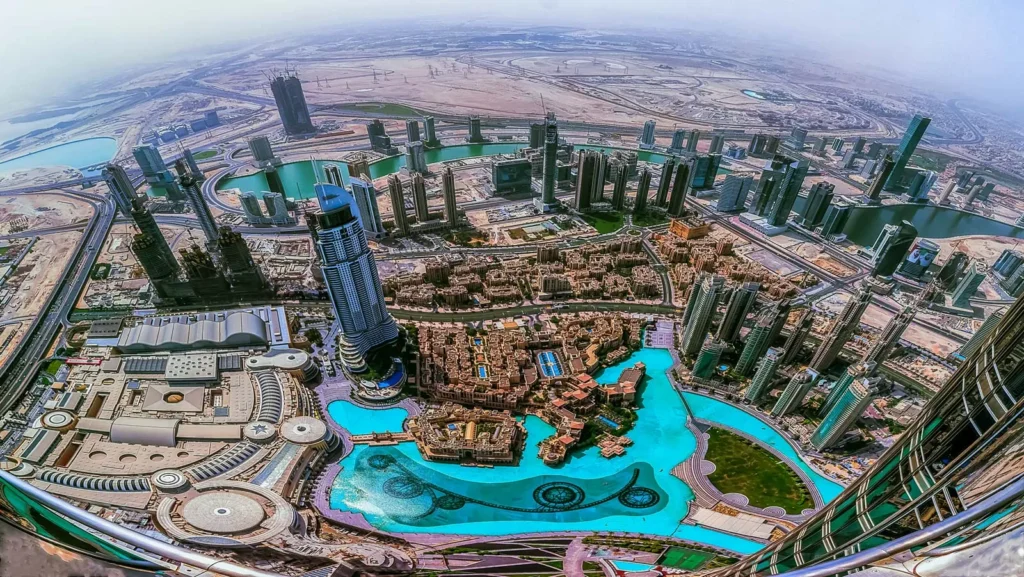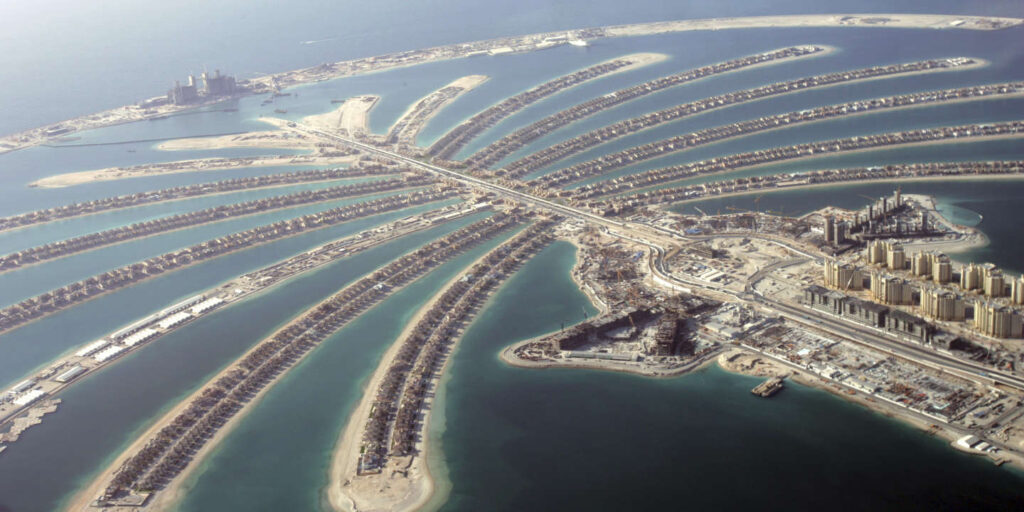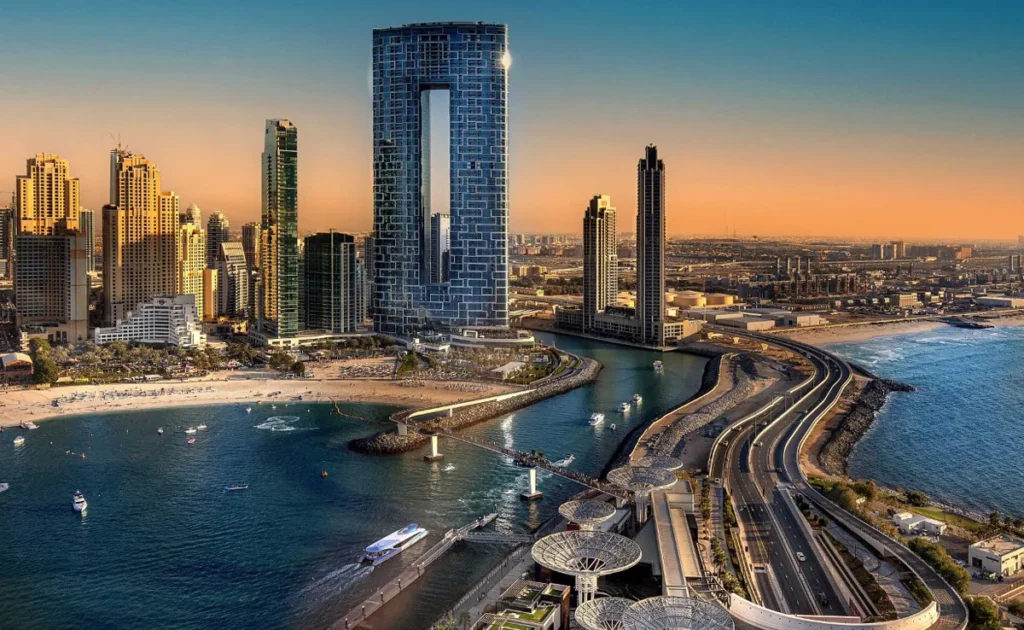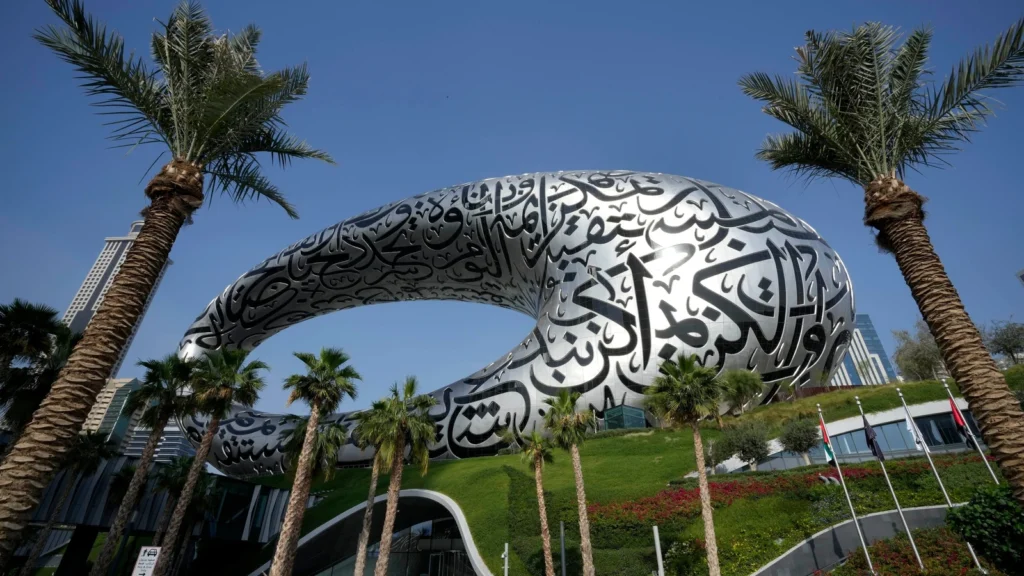Introduction

What springs to your mind when someone asks you about Dubai? I’m sure most of you would say oil, money, Burj Khalifa or Al Arab. Though, in reality it was just a city that was once a humble trading port in the Arabian Desert. However it has transformed itself into a global economic powerhouse. With its soaring skyscrapers, luxurious resorts, and bustling business districts, Dubai has become a symbol of rapid development and success. In this blog, I will delve into the factors that in my opinion have contributed to Dubai’s remarkable rise as an economic hub in the Middle East. If you want to know more about their history, click here.
Strategic Location:

- First and Foremost, I believe Dubai’s strategic location has played a pivotal role in its economic growth. Situated at the crossroads of Europe, Asia, and Africa, Dubai serves as a gateway between the East and the West. To add on, its proximity to major markets has made it an ideal destination for trade and commerce. Not only that, the city’s world-class infrastructure, including the Jebel Ali Port and Al Maktoum International Airport, has further enhanced its connectivity, enabling seamless movement of goods and people. Therefore, I believe the location has played a significant role.
Visionary Leadership and Political Stability:
- Secondly, I presume Dubai’s transformation into an economic hub would not have been possible without the visionary leadership of its rulers. They recognized the potential of the city and implemented forward-thinking policies to attract foreign investment, diversify the economy, and foster innovation. The political stability and consistent governance provided by the ruling family have created an environment conducive to business growth and development.
Business-Friendly Environment:

- Additionally, Dubai’s government has fostered a business-friendly environment by implementing favourable regulations and incentives. The city offers tax advantages, streamlined administrative processes, and minimal bureaucratic red tape. In my opinion, that’s very proficient, since they’ve made it attractive for international companies to set up their regional headquarters or establish a presence. The establishment of free trade zones, such as the Dubai International Financial Centre (DIFC) and Dubai Multi Commodities Centre (DMCC), has also provided specialised platforms for various industries to thrive. Hence, it won’t be wrong to say that a business-friendly environment has helped Dubai’s economy.
Diversification of the Economy:
- Moreover, Dubai has successfully diversified its economy beyond its historical reliance on oil. As mentioned earlier, the government’s concerted efforts to develop sectors such as tourism, finance, real estate, logistics, and technology have paid off really well. Dubai’s tourism industry, with its iconic landmarks, luxurious resorts, and world-class shopping malls, attracts millions of visitors each year. If we go by statistics, the contribution of the travel and tourism sector to Dubai’s GDP was nearly AED 180.4 billion which is equivalent to 11.6% of the total GDP. The financial sector has also flourished, with major international banks and financial institutions establishing a presence in the city.
Infrastructure and Real Estate Development:

- Apart from all that, Dubai’s skyline is a testament to its ambitious infrastructure and real estate development projects. The city has built some of the world’s tallest skyscrapers, including the iconic Burj Khalifa, which has become an international symbol of Dubai’s grandeur. The development of world-class hotels, shopping centres, and entertainment complexes has further enhanced Dubai’s appeal as a global destination for business and leisure.
Cultural and Social Advancements:
- Finally, Dubai’s commitment to cultural and social advancements has played a crucial role in its economic success. The city hosts numerous international events, exhibitions, and conferences, attracting professionals and businesses from around the world. Dubai’s commitment to safety, tolerance, and inclusivity has also made it an attractive destination for expatriates and international talent.
Conclusion

Dubai’s transformation into an economic hub is a testament to the city’s unwavering ambition, strategic vision, and innovative policies. Through its strategic location, visionary leadership, business-friendly environment, economic diversification, infrastructure development, and cultural advancements, Dubai has attracted global businesses, investors, and tourists alike. As Dubai continues to evolve and adapt to the changing global landscape, it is poised to maintain its position as a thriving economic hub in the Middle East and beyond.
If you liked this reading, and want to read more of our handcrafted blog posts, visit our Blog page.

No responses yet